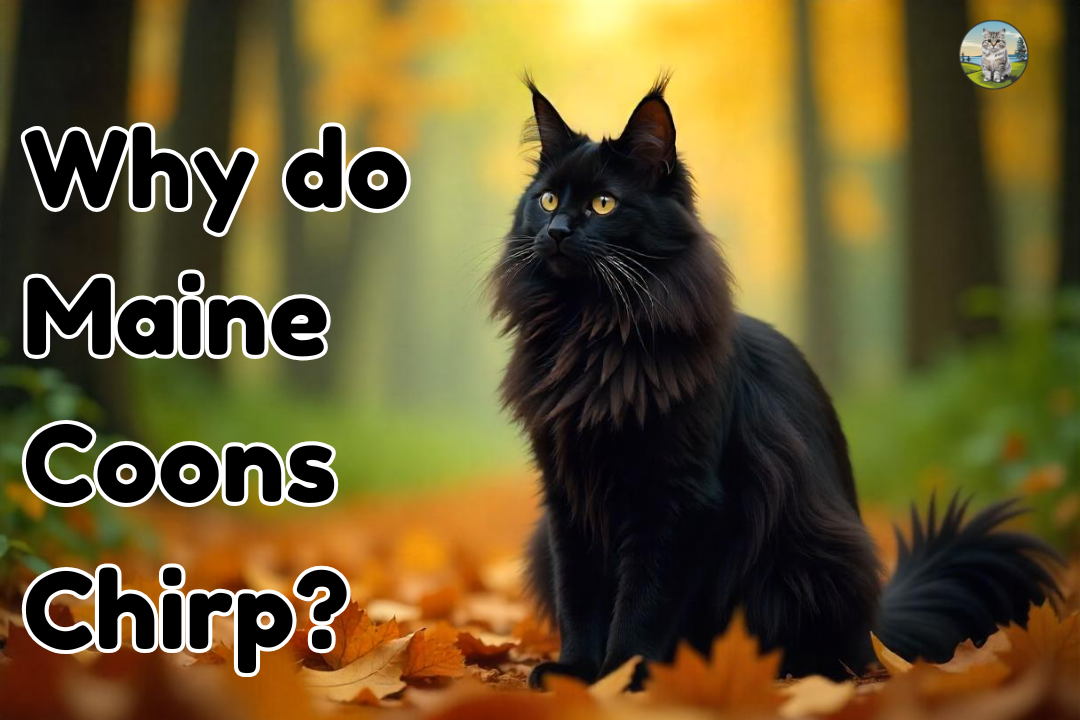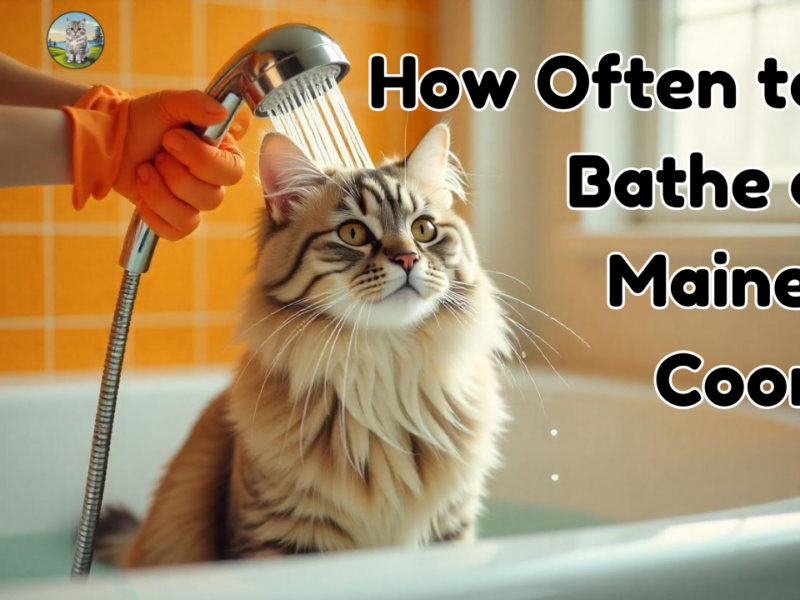If you own a Maine Coon, you’ve probably heard them make a cute, bird-like chirping sound. It’s different from a regular meow—more like a mix between a purr and a trill. But why do these big, fluffy cats chirp? Is it normal? And what are they trying to tell you?
In this article, we’ll break down the reasons behind Maine Coon chirping in simple terms. You’ll learn what triggers this sound, how it’s different from other cat noises, and what you can do when your furry friend starts “talking” to you. Plus, we’ll share some easy catoptips to help you understand your Maine Coon better.
What Does a Maine Coon Chirp Sound Like?
A chirp is a short, high-pitched sound—almost like a bird tweet or a soft squeak. It’s not a meow, hiss, or growl. Instead, it’s a happy, excited noise that Maine Coons make in certain situations. Some people describe it as a “brrrrp” or a rolling “prrrrt” sound.
How Is Chirping Different From Other Cat Noises?
- Meow – A standard cat sound, usually meaning “feed me” or “pet me.”
- Purr – A rumbling sound when they’re happy (or sometimes stressed).
- Chattering – A rapid clicking noise when they see birds or squirrels.
- Chirp – A friendly, musical sound, often when they’re excited or curious.
6 Reasons Why Maine Coons Chirp
1. They’re Happy or Excited
Maine Coons are social cats that love their humans. If your cat chirps when you come home or during playtime, they’re probably saying, “I’m so glad to see you!”
Catoptip: Try chirping back! Some Maine Coons enjoy “talking” with their owners.
2. They’re Watching Birds or Squirrels
Maine Coons have strong hunting instincts. When they see prey (like birds outside the window), they might chirp out of excitement—or even to try and “lure” them closer.
3. They Want Your Attention
If your Maine Coon follows you around chirping, they might be saying:
- “Play with me!”
- “Look at this!”
- “Pet me, please!”
4. They Learned It From Their Mother
Mother cats chirp to communicate with their kittens. If your adult Maine Coon still does it, they might have kept the habit from when they were little.
5. They’re Curious About Something
A new toy, a strange noise, or even a bug on the wall can trigger chirping. It’s their way of saying, “Huh? What’s that?”
6. They’re Asking for Food
Some Maine Coons chirp near their food bowl when they’re hungry. If your cat does this at mealtime, they’re politely (or not-so-politely) reminding you to feed them!
Do All Maine Coons Chirp?
Not every Maine Coon chirps, but many do. Some are very talkative, while others stay quiet. If your cat doesn’t chirp, don’t worry—they might show their personality in other ways, like purring or head-butting you.
What Should You Do When Your Maine Coon Chirps?
Since chirping is usually a happy sound, you can respond in fun ways:
- Talk back – Mimic their chirp to “chat” with them.
- Play with them – Grab a feather wand or laser pointer.
- Give them attention – Pet them or scratch their favorite spot.
- Check their needs – Make sure they have food, water, and a clean litter box.
Catoptip: If your Maine Coon suddenly starts chirping a lot more (or less) than usual, check with a vet to rule out health issues.
Final Answer: Why Do Maine Coons Chirp?
Maine Coons chirp because they’re happy, excited, curious, or trying to “talk” to you. It’s a normal, adorable part of their personality. The next time your fluffy friend makes that cute little sound, you’ll know exactly what they mean!
FAQs About Maine Coon Chirping
Q: Is chirping a sign of a happy Maine Coon?
A: Most of the time, yes! It usually means they’re excited or content.
Q: Should I worry if my Maine Coon chirps a lot?
A: Not usually—unless it’s paired with signs of stress (like hiding or not eating).
Q: Do Maine Coons chirp more than other cats?
A: Yes! They’re one of the most vocal breeds, along with Siamese and Bengals.
For more catoptips on Maine Coon behavior, keep reading our blog!


